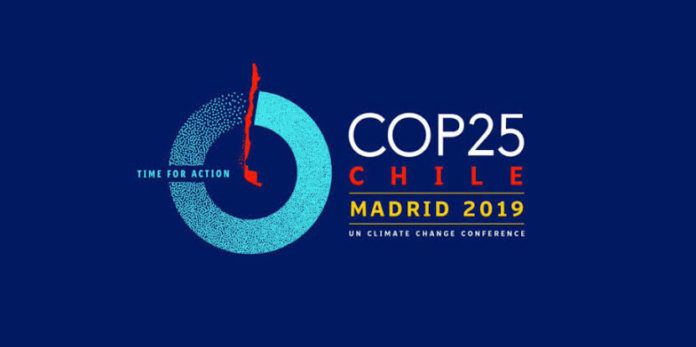New Delhi (NVI): Stage is set for 25th Conference of Parties (COP) to the United Nations Framework Convention on Climate Change (UNFCCC) in Madrid for Monday where India will, among other aspects, emphasise on scaling up the green efforts and fulfilling pre-2020 climate commitments by developed countries.
In the crucial COP meeting, which will be held under the Presidency of Chile from December 2 to 13, India’s approach will be guided by principles and provisions of UNFCCC and Paris Agreement particularly the principles of Equity and Common But Differentiated Responsibilities and Respective Capability (CBDR-RC), an official statement said.
“India has emphasised that developed countries should take a lead in undertaking ambitious actions and fulfil their climate finance commitments of mobilising $100 billion per annum by 2020 and progressively and substantially scale up their financial support to inform parties for future action through Nationally Determined Contributions (NDCs),” the statement added.
“India will further stress upon the need for fulfilling pre-2020 commitments by developed countries and that pre-2020 implementation gaps should not present an additional burden to developing countries in the post-2020 period,” the statement said, citing the Indian stand for the COP which was decided by Union Cabinet recently.
The COP is being held amid fresh warnings that the world has not been doing enough to save itself from catastrophic impacts of climate change. A series of reports from the Intergovernmental Panel on Climate Change (IPCC) and other agencies have been reiterating through the year that unless countries scale up their actions significantly, there is little hope of keeping average global temperatures within 2ºC higher than pre-industrial trends.
However, the prime objective of meeting with to complete the rule-book to the 2015 Paris Agreement so that it starts getting implemented from next year. The rulebook, which contains the processes, mechanisms and institutions through which the provisions of the Paris Agreement would be implemented, had been finalised in Katowice last year.
But some of the issues had remained unresolved and had left for negotiators to settle over the next one year. The most important one relates to the tussle over new carbon markets to be created under the Paris Agreement.
It is to be noted that annual Emissions Gap Report of UN Environment Programme says that the goal of keeping average temperatures within 1.5°C from pre-industrial times was “on the brink of becoming impossible”. To achieve that target, global greenhouse gas emissions in 2030 should not be more than 25 billion tonnes of carbon dioxide equivalent.
However, from the current rate of growth of emissions, the total is projected to touch 56 billion tonnes by that time, more than twice what it should be. Accordingly, the world needs to reduce its emissions by at least 7.6% every year between now and 2030 to reach the 25-billion-tonnes level.
And the positive development has been that so far, a total of 71 countries, most of them small emitters, have committed themselves to achieving net-zero emissions by 2050.








